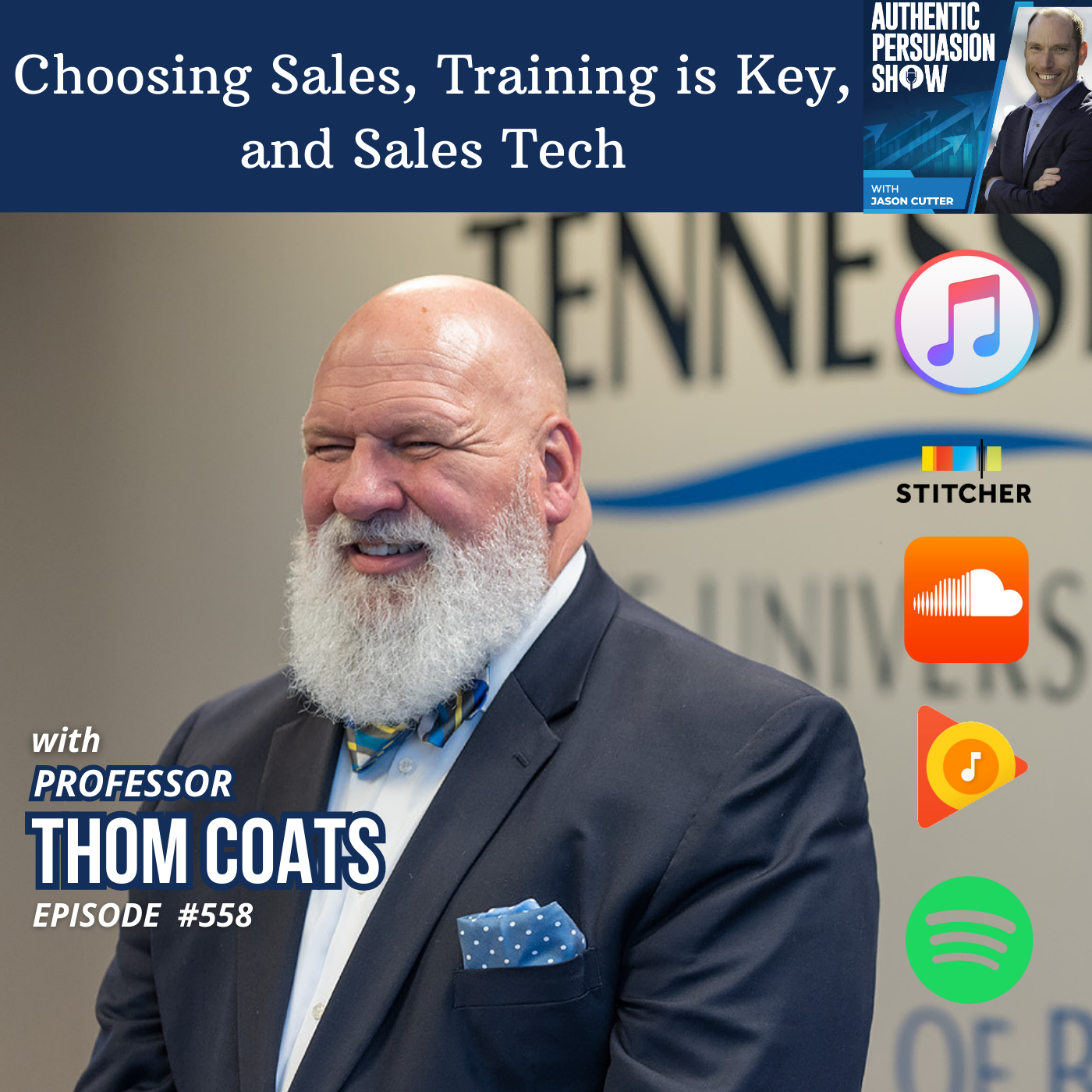[00:00:00] Speaker A: Welcome to the authentic persuasion show. On this episode, I want to replay part of a previous show.
[00:00:05] Speaker B: Maybe you heard the original full length.
[00:00:07] Speaker A: Episode and this could be a great refresher and reminder. Or maybe this is your first time hearing this content and the timing could be just right to help you leverage authentic persuasion today in your role, no matter what. Here's to your success.
This is the authentic persuasion show.
[00:00:24] Speaker B: You it.
The key is, again, if that doctor were to do things in the way that salespeople do it, you would want second opinions. You would never go back to that doctor again. You would never trust them to care about you. You trust them to care about themselves, but you don't trust them to care about you. And that's what we're talking about here. And that's why I refer to the second step in the pathway as empathy. The reason why and when it's done right. What you're doing in this process is you're asking questions. I've already talked about that. Talked about that a bunch. If you want more help on that with the questions, always email me.
[email protected] I can help you with some of the questions. Fundamentally remember what you're looking for. I mentioned it earlier. There's one piece of information that you need before you can move forward.
The key is to ask the questions and then to shut up and to listen. And that might sound harsh, but the key is to actually listen. Again, most people in sales think their job is to talk a lot and talk somebody into buying, but that's not the case. Your job is to listen, figure out how you can help that person feel like you actually care about a solution that's best for them and then provide that solution. And then persuade them to get out of their comfort zone and get unstuck and make a change. That is scary and worrying to them because it's the unknown. Your job is to make them feel safe. Successful at fear elimination. In order to make them feel safe, they have to feel like you care about them. We've all been given advice by people in our life, or not in our life, where they tell us to do something or they're trying to persuade us to do something, and you can tell they literally don't care about you.
And how well does that advice go? Or that suggestion or what that idea is they want to do generally doesn't go well or doesn't feel right, or it's not something you really want to do. Even if you agree, you know, it's not really something you want to do because, you know, they don't care about you. And that's what we're talking about. That's why it's the empathy step and the reason why, going back to what I talked about last week, is that active listening, two ears, one mouth. Ask questions. Listen for the answers. Respond appropriately. Keep asking, keep listening, keep asking, keep listening. And do that over and over again until you have that one piece of information. If you have a 30 minutes phone call scheduled with somebody, do not rush through this part because, oh, I've got to do a demo and I've got to tell them about this and I have to do the other thing. No. If it takes you 2025 minutes of question asking in a conversation, not an interrogation, but in a conversation to get the piece of information you need, that is a perfect use of time. Because if you rush through the other parts or rush through that part and then move on, you won't have what you need. And then you're just an order taker or a manipulator. You're either one end of the spectrum or not. If you don't know why they want or need what it is that you're selling.
The empathy part comes into the fact that when you ask somebody questions and when you listen to the answers and respond appropriately and give someone a chance to talk about themselves, it will literally make people feel like you care about them. It is amazing. And what I'm going to say, and this is an example we can all relate to, is that I feel like now more than ever, having conversations with other people can be very challenging where people are distracted, they're on their phone. Maybe you're trying to explain something to them and they're literally looking at their phone instead of listening to you. And how do most people react? I know how I react, which is I'll just wait, you let me know when you're done and then I'll keep talking. Because it literally feels like you don't care. Right. And it happens in social situations, friends, whatever.
And the thing that makes people feel like you care. And I can remember some examples. I remember one of the first times this happened that I aware of when I was in sales and I was listening to it, is that there was this woman that worked at the company I was at, and she was in an administrative role, and she would ask questions and we would just talk right in between calls or whatever, and she would just ask questions and ask questions and then listen and then ask more questions. She never asked a question where you can tell when somebody's doing it where they're just waiting for you to stop talking so that they can jump in and either one up or talk about their own story, or a time when they did a thing or some other thing and just change the topic. In general, she was amazing at asking questions. She was so curious and just wanted to know everything and anything. And the feeling that I had in talking to her still sticks to me to this day. We're talking 2002. This is quite some time ago. Can still remember the picture. I remember where I was sitting. I remember where she was sitting. I remember the conversation. I remember how I felt, because it was one of those times that we have through our lives where you're talking to somebody and they really care. That's what you want for your customers. That's what you need to give them. And here's what's so amazing. If you do this empathy step and you ask questions and you listen, take notes and tell them that, show them that you're listening by repeating the things that they say, which I'm not always a huge fan of, that in every situation, just ensuring that they know that you're listening and that you actually care.
What will be so amazing is that that doesn't happen a lot in people's lives these days. Everyone is busy. It feel like not blaming technology, but technology has made it so most people just don't listen.
![[718] How to Truly Connect with Customers](https://episodes.castos.com/salesexperiencepodcast/images/1644038/c1a-4d8w-60p8jzzpto3j-9d7gzo.png)


